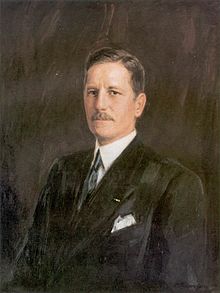Background
Patrick Hurley was born on January 8, 1883 in Oklahoma, United States.


Diplomat Major general Soldier statesman
Patrick Hurley was born on January 8, 1883 in Oklahoma, United States.
He graduated from Indian University, now Bacone College, in 1905 and received his law degree from the National University School of Law, Washington, in 1908.
Beginning the practice of law in Oklahoma (1908), Hurley served as a colonel in the American Expeditionary Force in World War I. During the 1920s he became active in Republican Party politics, serving as secretary of war in the administration of President Herbert Hoover (1929–33). When the United States entered World War II (1941), he was promoted to brigadier general and went to the Far East as General George C. Marshall’s personal representative to examine the possibility of relieving U.S. troops on the island of Bataan. Three times he succeeded in delivering food and ammunition to the beleaguered force there and was present in Australia to greet General Douglas MacArthur when he was flown out.
Though Hurley was a staunch Republican, throughout the remainder of the war he served as President Franklin D. Roosevelt’s personal representative in various diplomatic capacities. After serving as minister to New Zealand (1942), he flew to Moscow and received permission to visit the Eastern Front—the first foreigner to do so; he next visited the Near East, Middle East, and China (1943) and Afghanistan (1944). As U.S. ambassador to China (1944–45), in the interest of unifying and strengthening the Chinese war effort, he attempted to reconcile the Nationalist (Kuomintang) government and the Communist faction in the north; his mission was a failure, and he resigned his post in November 1945.
Both contemporary and modern assessment of Hurley have not been kind. Michael Burleigh wrote, "US policy was not well served by its Ambassador to China from late 1944 onwards, a former Republican secretary of war called Patrick Hurley, a drunken idiot given to Choctaw war cries. Oblivious of China's delicate protocols, he referred to Chiang as 'Mr. Shek' and Mao Zedong as 'Moose Dung' in the course of shuttle trips designed to bring the two together to convert China into a springboard for the final showdown with the Japanese. Mao's cronies called Hurley 'the Clown'; his US diplomatic colleagues dubbed him 'the Albatross.'"[103]
Aside from Hoover himself, Hurley was the last living member of the Hoover administration.
